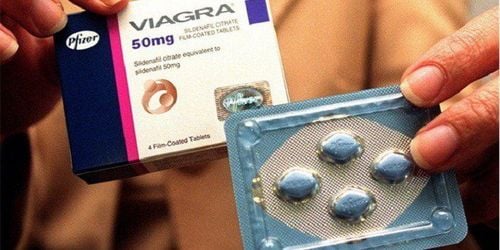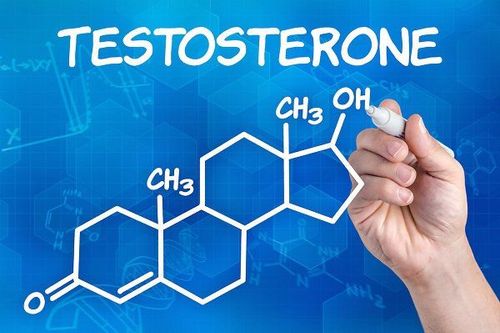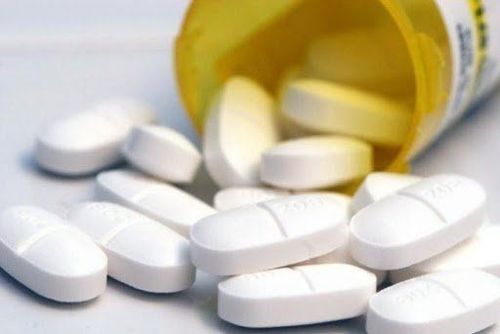This is an automatically translated article.
Posted by Resident Doctor Trinh Ngoc Anh - Department of General Internal Medicine - Vinmec Times City International HospitalThe longer the duration of diabetes, the higher the rate of erectile dysfunction. The causes of erectile dysfunction are often many, sometimes the risk factors are intertwined or combine to create a very complex pathology.
1. What is Erectile Dysfunction? Erectile dysfunction is the inability to achieve and maintain an erection during intercourse. Erectile dysfunction includes the following manifestations: Impotence, impotence, male hypogonadism. This is a fairly common condition in patients with metabolic cardiovascular diseases, sometimes it is also the first sign that makes men go to the doctor for early detection of these diseases.
In terms of consequences, erectile dysfunction is not a fatal disease, but it greatly affects the quality of life. Erectile dysfunction will reduce sexual activity, loss of desire, loss of self-confidence, gradually the disease causes mental damage, social distancing is likely to occur later. For patients with diabetes, erectile dysfunction often appears early, due to many causes. The longer the duration of diabetes, the higher the incidence of erectile dysfunction, other factors such as age, alcohol consumption, poor blood sugar control and vascular complications increase the risk. The rate of erectile dysfunction in diabetic patients is much higher than in the group of non-diabetic patients of the same age from 15 to 18 times.

Rối loạn cương dương ảnh hưởng nhiều đến chất lượng cuộc sống của người mắc
2. What causes erectile dysfunction in people with diabetes? The causes of erectile dysfunction are often many, sometimes the risk factors are intertwined or combine to create a very complex pathology. In which, in patients with diabetes can be classified into 4 main groups of causes: vascular, endocrine, neurological, and psychiatric diseases.
Causes of vascular disease: Uncontrolled diabetes often leads to atherosclerosis leading to narrowing or even blockage of the blood vessels in the pelvis and the penis that nourish the penis. Endocrine causes: Diabetes mellitus and metabolic syndrome in general often have separate pathogenesis causing insulin resistance, leptin resistance, increased aromatase secretion, which results in secondary hypogonadism, decreased blood levels. Testosterone levels, this is a hormone that plays a key role in male sexual function because it stimulates the cerebral cortex, leading to increased NO secretion, causing penile artery dilation, making the penis erect. Neurological causes: Diabetic patients, especially those who abuse alcohol, control blood sugar, often have damage to the sympathetic nervous system and peripheral parasympathetic nervous system leading to inability to have an erection of the penis. Mental causes: People with diabetes tend to be prone to stress, mental stress, sleep disturbances, depression... which significantly affects sexual performance Thus, erectile dysfunction may not dangerous but will be an early warning sign of the presence of dangerous complications from diabetes.
3. Diagnosing erectile dysfunction in people with diabetes? For early detection, patients need to go to the doctor when there are symptoms such as decreased sex drive, loss/reduction in penile erection or shortened erection time. During the visit, the doctor will make a complete assessment for the patient including:
Assess blood sugar control
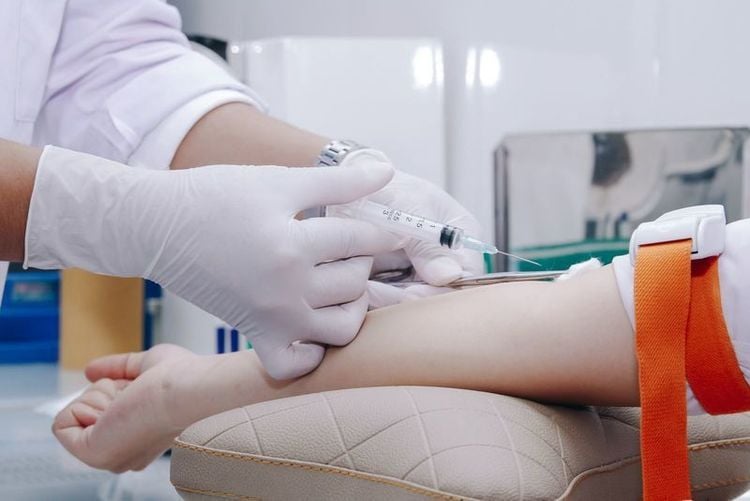
Đánh giá kiểm soát đường máu bằng kỹ thuật xét nghiệm máu
Adjust diet, lifestyle Life: Quit smoking, limit alcohol, increase physical activity, healthy diet Regulate blood glucose: With oral medication or insulin injection is the focus of treatment Treatment of vascular complications : Adjust cholesterol, use vasodilators, anti-thrombotic, anti-atherosclerotic Treat neurological and psychiatric complications if any Use specific treatment measures: Testosterone replacement therapy, inhibitors 5-Phosphodiesterase, shock wave therapy, negative pressure suction, local injection...
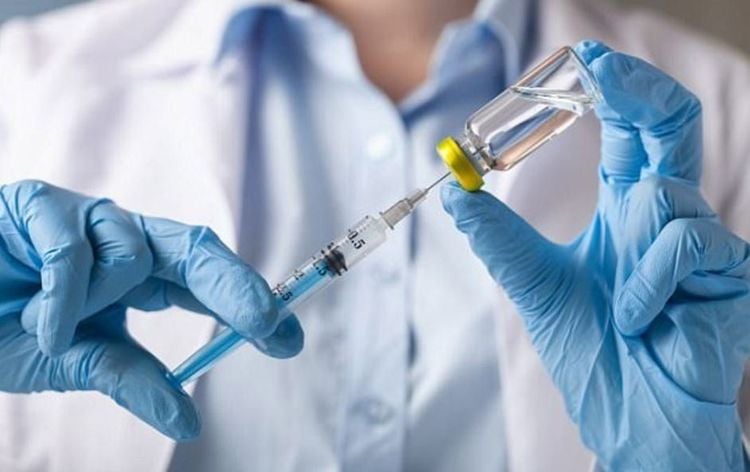
Người bệnh sẽ được áp dụng phác đồ điều trị phù hợp với tình trạng bệnh đang gặp
Also because of such complicated treatment, patients need to see a doctor soon, need to be examined and evaluated comprehensively by a specialist and need to actively change their lifestyle to overcome one of the very common complications. variable in diabetic patients.
At Vinmec International General Hospital, we always deploy a screening package for diabetes and dyslipidemia to help detect pre-diabetes early, accurately classify diabetes type, develop a nutritional regimen, monitoring to minimize the risk and complications caused by diabetes.





